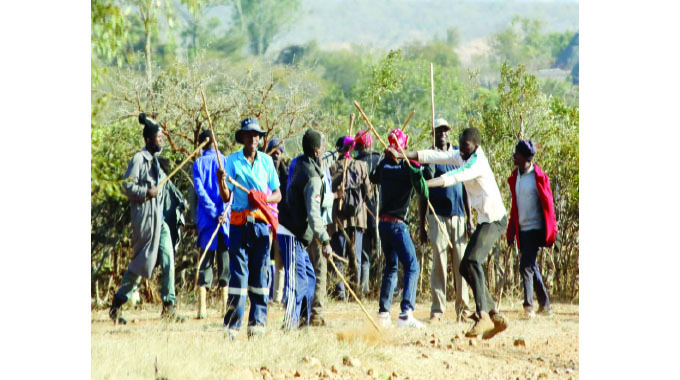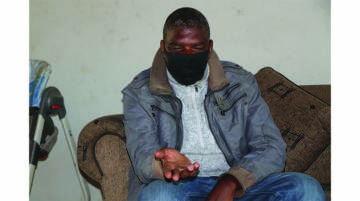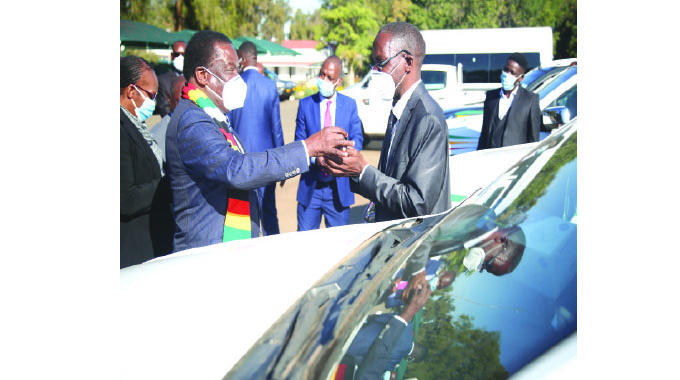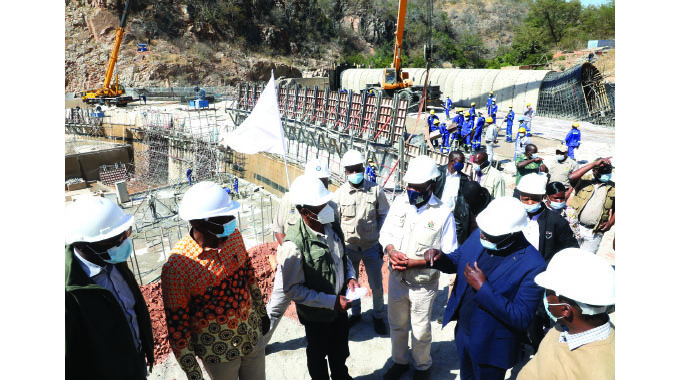Xhosa uphold circumcision of boys culture

Sukulwenkosi Dube-Matutu, Chronicle Reporter
THE Xhosa community in Mbembesi, Matabeleland North has continued to uphold its culture of circumcising boys who have attained the age of 18, and five were ushered into manhood yesterday.
According to Xhosa culture it is compulsory for all boys to get circumcised upon attaining the age of majority. The ceremony marks the transition from being a boy to a man. A male who skips this stage is not considered a “real man” by the Xhosa.
Other tribes like the Ndebele living within the Xhosa community have adopted this culture in order to fit into society and get the necessary recognition.
Despite the excruciating pain that comes with this exercise, youngsters look forward to getting circumcised in order to avoid being scorned by their age mates.
A Chronicle news crew yesterday visited Maqaqeni Villlage in Mbembesi area where a circumcision ceremony for five boys was being held.
About 500 villagers gathered for the ceremony at a homestead but by the time the news crew left at around 5PM, the five had not yet been circumcised as preparatory ceremonies were being held.
Men and boys were conducting stick-fights.
Women were cooking and people were drinking traditional beer. There was singing and dancing but one thing stood out: there was violation of Covid-19 protocols.
The villagers were not wearing masks and there was no social distancing.
Chief Ndondo who stayed away from the ceremony said he had tried to stop it due to the threat of Covid-19 but failed.
He said the circumcision process was conducted by village “doctors”.
“This culture dates back to early 1800s. We originated from the Natal and in the 1830s we relocated to the Eastern Cape but we still held that culture and we later settled here in 1898. The last group came around 1900.
We have always stuck by our culture up to date. In some communities they record casualties during their circumcision exercises but in our case, we haven’t recorded any casualties in the last century. People that undergo circumcision are assessed and approved by doctors. The doctors have their own association as circumcision doctors,” he said.
“We normally have overnight ceremonies where early in the morning the initiates are taken to the river. The circumcision process is conducted during the winter season by the river. The initiates are taken to the river early in the morning and cold water is poured on them and the doctor then circumcises them by cutting off the foreskin. Normally there isn’t even a drop of blood that comes out during the process because of the cold.”
Chief Ndondo said temporary shelter known as ibhumu is set up in the bush in a secluded place where the boys are taken by a designated person and they stay there for a month. He said during the first week of their stay they have to eat “umphokoqo”, a traditional meal which is normally mixed with river sand.
Chief Ndondo said in the olden days the boys were supposed to fend for themselves and hunt for their own food during their stay at the temporary shelter.
“This signifies their transition into manhood where they have to fend for themselves. Due to modern ways families now give the initiates some meat which they cook and eat during that one month stay. After the one-month period the boys go back home where they are given gifts and taught about manhood, how to be a man and the responsibilities of a man. From there the boy becomes a man and he is given new clothes,” said the chief.
“The disadvantage of not being circumcised is that you are not recognised as a man. They look down upon you, belittle you and they don’t allow you to sit in councils or other decision-making platforms.”
Chief Ndondo added: “When you get to a certain age you want to get into manhood. If you are not circumcised at the age of 18 the younger boys will disrespect you. This year people had prepared and scheduled their initiation ceremonies.”
The chief said last year the ceremony was cancelled and this year he tried to stop the ceremony from being conducted due to the pandemic but the community insisted on having it saying it was of paramount importance.
“On my side I called all elders, village heads and headmen and told them to cancel all ceremonies that had been scheduled for this winter season. I also instructed the officer in charge (police) to monitor the people and ensure the ceremony was not held. The village heads said they tried to stop the people but failed,” he said.
Mr Bongani Diwili (59) who is Maqaqeni Village heads’ secretary said the next circumcision ceremony will be held in August.
He said there were specific homesteads which had been identified as circumcision points. Mr Diwili said he got circumcised in 1990 and this has helped him to attain the position of leadership within the community. He said the pain was excruciating but it was worth it.
The tradition of circumcision by the Xhosa community has come under scrutiny as it poses a health threat and might be a violation of people’s rights.
Zimbabwe Human Rights Commission (ZHRC) chairperson Commissioner Dr Elasto Mugwadi said mutilation of one’s body parts was a violation of human rights. He however, if one consents, it is a different case. Dr Mugwadi said however, in the case where young persons are compelled to do it because of societal expectations, it could be a violation of their rights.

Chief Ndondo
“The problem with some cultural practices is that they end up being a violation of one’s rights. In this case the youngsters are pressured by society to conform to its expectations and circumcision ceases to be something they wish to do but something they are expected to do and something which they have to do.
Another challenge is that this matter has the influence of guardians that will be obviously emphasising the need for their children to preserve culture. There is also the issue of health because there is no guarantee that the equipment that is used will be safe. If one’s health is compromised while conducting these circumcision ceremonies then that’s a violation of rights,” said Mr Mugwadi.
“Some of these cultural practices are however, done with the consent of a person which isn’t necessarily an act of violating rights. As a commission we will launch an investigation into the matter and get to the bottom of it. The State also needs to look into this matter so that these children are protected.’’
A health worker at a local clinic in Maqaqeni Village in Mbembesi who preferred anonymity said there are positive Covid-19 cases in that community.
She said they had tried to engage the community over the possible health hazards which could be caused by the circumcision ceremony.
She said they had tried to invite the community to have their circumcision done at the health facility but they preferred to have it done traditionally.
“The community continues to hold circumcision ceremonies even during the Covid-19 pandemic. We have cases and they are increasing but they don’t heed the advice. The community insists on circumcising traditionally without the help of health officials and we don’t know if the equipment they use isn’t shared. If it is shared then this might result in the spread of diseases such as HIV and Aids,” she said. – @DubeMatutu.









Comments